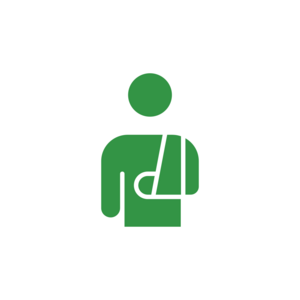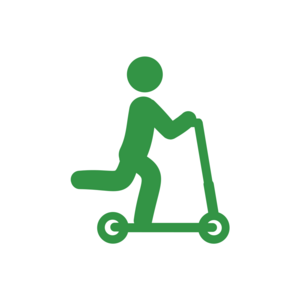What are an OSCAR programme's “duty of care” obligations?
Duty of Care in OSCAR
The term “duty of care” can be used to mean both a specific legal concept and a broad set of practices that can be grouped under a legal definition such as this:
“A duty to use due care toward others in order to protect them from unnecessary risk of harm.”
The OSCAR Accreditation Standards have this wording: “The organisation fulfils its duty of care with respect to all children enrolled in the programme.” The standards go on to outline requirements for supervision, enrolment, responding to accidents, caring for unwell children etc.
The duty of care requirement in the OSCAR Standards is similar to Ministry of Education guidance: “Schools have a legal duty of care to ensure a safe and healthy environment for all staff and students… Teachers and staff also have a duty to ensure their actions don't negatively impact the safety and wellbeing of others.”
environment for all staff and students… Teachers and staff also have a duty to ensure their actions don't negatively impact the safety and wellbeing of others.”
From these examples we can see that duty of care in OSCAR is primarily concerned with the safety and wellbeing of children. However, the specifics of what is required to meet this duty of care are not spelled out under legislation. Duty of care is part of the common law (sometimes now called civil law) which comes from decisions in the courts, rather than being made by the government passing legislation. It’s in the rulings of judges in cases of negligence that we’ll find the term ‘duty of care’.
There’s also legislation on safety that applies to OSCAR services. The Health and Safety at Work Act details the steps required to maintain a safe environment for staff, and everyone else in that environment and there is an overlap between safety legislation and ‘duty of care”.
An easy way to think of the difference is that our legislation is mainly concerned to address the safety of staff, and ‘duty of care’ is mostly concerned with the safety of clients/customers of a service (or users of a product). But the two parts of law complement each other; so that an OSCAR service, in complying with health and safety legislation, is going a long way towards meeting its duty of care for the children enrolled in its programme.
Hopefully this clarifies how ‘duty of care’ applies broadly within OSCAR. To get more specific about what you should have in place at your programme, further below we’ll discuss some practical processes that address duty of care:
Safety and supervision requirements under the OSCAR standards
Enrolment: formalising care in a contract
Staff practices and professional conduct
Understanding legal liability and reducing legal risk
Safety and supervision requirements under the OSCAR standards
The OSCAR Accreditation Standards are not mandatory for all OSCAR services but are requirements to be eligible for OSCAR Funding and Fee Subsidy (link). To get Accreditation an OSCAR service must meet the requirements of the Level 3 Social Sector Standards and the OSCAR Programmes Standard.
The OSCAR Standard is just a few pages and is accessible here Link to the standards In summary, it outlines a basic framework for the provision of a child care service and for fulfilling ‘duty of care’ and could be put into practice, whether or not an OSCAR service actually undertakes the accreditation process.
The standard does not enforce a mandatory staffing ratio, however it includes this guidance:
- It is recommended that supervisor:child ratios of 1:10 on-site and 1:8 off-site are maintained. However, as long as safety of all children at the programme can be managed and evidenced, programmes can determine their own ratio.
- It is recommended that having two staff present when children are on-site is good practice and minimises potential risk. It reduces the opportunity for potential or actual harm to a child or accusations being made about staff.
- It is recommended that programme managers and supervisors are at least 20 years of age.
 The standard also specifies:
The standard also specifies:
- Ongoing, consistent supervision of children by trained, competent staff
- Risk assessment for activities like excursions and swimming
- Processes to regularly account for all children and procedures to follow if a child is missing
- Processes to ensure children arrive and leave the service safely
- That staff have good information, including training as needed, about individual children’s needs
- That younger staff (under 16) are supervised by experienced colleagues
Duty of care obligations are mostly met through your management of staff and setting in place practical processes for them to follow:
- setting clear expectations for staff practices (which would be reflected in their job description and code of conduct),
- ensuring staff are competent for their role (providing training and ongoing supervision and feedback)
- establishing appropriate procedures that help staff actively monitor and manage risks; including regular processes like head counts, venue safety checks, rules for particular activities and moving children around in groups etc.
These processes are consistent with requirements found in health and safety legislation, which also places great emphasis on the importance of staff training and their active participation in managing safety. (There are further comments on staff responsibilities below.) OSCN provides training and a range of other resources to support programme safety policies and practices.
Enrolment: formalising care in a contract
An important part of enrolment is collecting personal information. Aside from obvious personal details, as a minimum the OSCAR standards require that enrolment forms include
- a minimum of two emergency contacts
- the day(s) of the week and the sessions the child will be attending
- any health and/or medical conditions, including what treatment is required and whether the child is self-medicating
- parental/guardian written consent is obtained, including the required departure time, if a child is required by their parent/guardian to leave the programme unaccompanied
- names of individuals authorised to collect the child from the programme.
When collecting, using and storing personal information there are obligations under the Privacy Act which are covered elsewhere
Link to sample enrolment forms
When a parent enrols their child, the programme and the parent are also making a legally enforceable contract. It’s very rare to ever see a parent end up in court with an OSCAR programme but in relation to recovering unpaid fees via debt collection services, having a contract does matter.
OSCAR programme but in relation to recovering unpaid fees via debt collection services, having a contract does matter.
Enrolment also formalises your duty of care relationship with the parent. They entrust your programme with the care of their child and your programme takes on legal and professional responsibilities. There will also be responsibilities on the parent – all of which should be “in black and white” when the parent enrols: your terms and conditions.
Terms and conditions are the rules and guidelines that you expect the parent to comply with. For example:
- we expect you to notify us by midday if your child won’t be coming to OSCAR, otherwise we will charge you for the session
- only people listed on your enrolment form will be allowed to pick up your children and we require a copy of any court order that restricts a parent’s access*
- if we have concerns about your child’s behaviour we will raise this with you and we may exclude your child from the programme if there are ongoing safety concerns
* Your programme should ensure they have full information about anyone who has a parental role, as you can’t restrict their access to their children unless there is a court order in place.
You are allowed to set terms and conditions as you see fit, but you may want to think about whether the expectation is reasonable. E.g. charging for public holidays that fall during term time: many OSCAR programmes and early childhood services do this, so even though parents may not like it, it is a “customary practice” that many OSCAR services follow. (Our focus here is on expectations concerning duty of care. We have separate resources on fee policies.)
Parent consents: by filling in your enrolment form, parents are giving you permission to look after their children – but what does ‘look after’ mean? Specific consents could include:
- Participation in the programme activities like games, using the playground, arts and crafts etc
- Any specific activities that have particular safety risks e.g. swimming, excursions. Holiday programmes usually cover this by explicitly getting parents agree to whatever is promoted on their programme flier
- Permission to administer first aid and to seek emergency medical assistance of required
- Permission to be transported – if the programme is collecting children by vehicle
- Some programmes also include a ‘waiver’ clause. This is discussed further below.
The enrolment process is the first step in what you hope will be a constructive relationship with parents. Some programmes require parents to come and meet in person when enrolling. It’s often the case that parents sign and don’t read your information fully so a personal conversation helps check that important things are understood and is a good investment in preventing problems further on, due to misunderstandings.
This early communication also makes it easier to have conversations if there are problems or concerns. It is very common to hear that parents of children who have had children excluded because of unsafe behaviour, believe that they were not given any indication that the situation was serious and exclusion was a possibility. Pro-active communication is just another part of our duty of care, particularly if the behaviour of a child is impacting the safety of other children.
Duty of care in action
The arrival of children at the programme and how they leave is where the duty of care responsibility is most visible. Sign in and sign out procedures make it clear that the programme is accepting duty of care and also when that responsibility is being handed back to the parent.
By monitoring arrivals in a holiday programme staff can remind parents to sign required consents (e.g. trips) and check in about children with higher care needs (How did they sleep? Have they eaten etc.) This can be very beneficial for understanding what might be going on behind the scenes for a particular child and builds goodwill and trust with parents, which can also help when working through any problems that arise.
Monitoring who is expected and who has arrived in an after-school setting is a critical process, especially in larger, busier programmes or where children are coming to programmes not based in their school grounds. Special care will often be taken for the youngest children e.g. meeting them at their classroom. The OSCAR standards require there to be a procedure if a child who is expected does not arrive and this can be a daily concern for after-school programmes. Most programmes set firm expectations for parents to communicate, as time spent locating children has impacts on the rest of the programme. (Some implement penalty fees for parents who forget to notify that their child won’t be attending.)
 Duty of care also requires that staff maintain appropriate communication with parents during the programme, for instance of there is an accident or other incident, or the child becomes unwell.
Duty of care also requires that staff maintain appropriate communication with parents during the programme, for instance of there is an accident or other incident, or the child becomes unwell.
Pick ups of children should also be consistently monitored, as some parents may overlook the sign out process and leave the programme with no idea who a child went with (if no one saw them leaving). Staff should be politely persistent that parents ‘follow the rules’ around sign in/out and communicating changes of plan, who will be collecting the child etc.
As noted under the OSCAR standards children should only leave the programme unaccompanied if the parent has given explicit permission (usually in writing). The programme should reserve the right to not agree to this arrangement if they think it’s not safe e.g. a child being expected to walk home after 5pm in winter, or a very young child is expected to walk home on their own*
* Even though many young children do walk themselves home from school at 3pm, it’s a very different situation for a child to do that say at 4pm when there are less children and adults generally on the streets. We suggest that OSCAR services err on the side of caution when agreeing to these sorts of arrangements.
Situations can arise where staff have concerns about how children are leaving the centre e.g. a parent appears intoxicated, or a staff member witnesses some else that’s unsafe where they may be a concern for a child’s wellbeing. These are also duty of care matters and serve as a reminder that our primary duty of care is for the child. If a staff member has concerns they should be able to raise these with senior programme staff and make a confidential note of their concern. In these situations, senior staff may choose to keep the matter under observation, approach parents for a careful conversation, or take other steps, but there are very few circumstances where a staff member would refuse to allow a child to go with a parent/caregiver.
Strictly speaking an OSCAR programme only has a duty of care when the programme is open. When children arrive at before school care or a holiday programme before opening hours, some programmes may provide some kind of holding space for them but most programmes pursue steps to discourage this, especially if children are being dropped off before any staff have arrived. Firm conversations with parents may be required, backed up with the consequence that the programme stops caring for the child until the parent has made alternative arrangements that comply with the opening hours. These situations are often worked out on a case-by-case basis and programmes learn to see when there is genuine difficulty as opposed to parents simply taking advantage of their goodwill.
 Once the child is at the programme the duty of care continues until they are discharged to an authorised person. If a child has not been collected from the programme after it has closed, the programme still has a duty to care for that child. It is not advisable for staff to be transporting children to their homes and late collection processes normally require the child to remain at the centre with staff until they are collected. Additional fees may apply and again there can be discretion e.g. will you charge a parent if they are late due to serious car accident? It is not reasonable to expect staff to work past the programme close regularly so again it may be a case of stopping car for persistently late parents until they have an alternative plan for pick up in place.
Once the child is at the programme the duty of care continues until they are discharged to an authorised person. If a child has not been collected from the programme after it has closed, the programme still has a duty to care for that child. It is not advisable for staff to be transporting children to their homes and late collection processes normally require the child to remain at the centre with staff until they are collected. Additional fees may apply and again there can be discretion e.g. will you charge a parent if they are late due to serious car accident? It is not reasonable to expect staff to work past the programme close regularly so again it may be a case of stopping car for persistently late parents until they have an alternative plan for pick up in place.
While programmes may have a policy of contacting police if the child is still not collected beyond a certain time, in our experience this is rarely enacted and is very much a last resort in exceptional circumstances. It may also be the case that local Police lack the resources to manage this situation, although they may be able to assist in locating the parent or another family member.
School-based OSCARs may also find that non-enrolled children are on school grounds outside of school hours. These children can’t be the responsibility of the OSCAR programme but it may be that the school doesn’t have any particular policy for responding either. In this situation it really helps to have had some regular constructive communication with school leadership (not solely about problems) and so have a base for sitting down and working out an effective policy
In general, regular, positive communication with key school staff (including office staff, caretaker etc) can be an assert when there are problems to solve such as locating children, negotiating pick up of children for an off-site programme or reporting a safety concern or incident involving school pupils or school facilities. School leaders have a lot of their plate so don’t take up much of their time but do keep them in the loop.
Staff practices and professional conduct
It should be fairly obvious that organisations can be liable for the actions of their staff. Our safety legislation is clear that induction training is a critical responsibility and many cases of injury highlighted by Worksafe point to lack of adequate training is safety practices as a major factor.
The duty to maintain safety and good supervision practices is shared by all programme staff. That’s why many OSCAR programmes require staff to sign off on a Code of Conduct that includes “duty of care” requirements such as these:
Staff have a professional and legal obligation to consistently monitor and assess the safety of children and to act to reduce or eliminate unacceptable risks. This is a “duty of care” and it continues for the entire time that children attend the programme, until they are released to the care of a parent/caregiver or other authorized person.
 This means:
This means:
- when supervising children, give this task your complete attention
- if a situation is unsafe, act immediately and get assistance if required
- if a you see any possibility that an activity could cause an accident or injury, stop the activity immediately
- monitor yourself and others (staff/visitors) to avoid situations where an adult is alone with a child
- keep other staff informed about your whereabouts and immediate duties
- act promptly to report any observations or concerns regarding child abuse or mistreatment
It’s often the case that staff will be given specific activities, areas or groups to be responsible for and they will be expected to give these tasks their full attention. Effective supervision of children requires staff to be active, involved and attentive to changing circumstances and the dynamics of the group they are responsible for. Supervision is more than just being there, a part of the ratios; standing back and only stepping in if there are problems. An effective supervisor will be watching, encouraging, questioning, reminding, laughing, scanning, directing and re-directing. Reacting and interacting. This is without a doubt, skilful work, much more than a “baby sitting” role.
“Negligence” refers to a breach of duty of care. Organisations and individual staff may be liable, if there was harm caused by an incident, action or inaction that was reasonably foreseeable or preventable. Procedures should be in place to help minimise the risk of accidents and the programme must ensure these are well understand by all staff. This would include for example clear safety rules for playgrounds, which are a likely source of injury for children.
It is normal and desirable for children to be active and adventurous in their play. Accidents and injuries are unfortunate but also a normal part of a child’s development. It is not possible to eliminate all risk of injury but consistent supervision of children’s activities is expected. With appropriate training, on-the-job support and experience, staff learn to judge when and how to step in to stop or re-direct an activity that is becoming dangerous.
Understanding legal liability
Please note: this information has been provided to highlight some of the legalities when a child is injured. We hope this information will be a useful guideline but this should not be treated as formal legal advice.
 In most cases of personal injury caused by accident, the Accident Compensation Corporation (ACC) will provide coverage. This means that when a child is injured, ACC is likely to cover the costs of treatment and rehabilitation. * In addition, where ACC does provide coverage, legislation prohibits any civil legal action (i.e. a personal law suit), except in rare cases where exemplary damages may apply. Exemplary damages can only be claimed where there is a very high degree of misconduct e.g. involving recklessness, purposefully ignoring safety rules, or blatant wrongdoing.)
In most cases of personal injury caused by accident, the Accident Compensation Corporation (ACC) will provide coverage. This means that when a child is injured, ACC is likely to cover the costs of treatment and rehabilitation. * In addition, where ACC does provide coverage, legislation prohibits any civil legal action (i.e. a personal law suit), except in rare cases where exemplary damages may apply. Exemplary damages can only be claimed where there is a very high degree of misconduct e.g. involving recklessness, purposefully ignoring safety rules, or blatant wrongdoing.)
(*There are some exceptions to ACC coverage)
An OSCAR programme or its staff could be prosecuted by Worksafe (under Health and Safety legislation) or by the Police (a charge of criminal nuisance or criminal negligence.) Potential liability would depend on the circumstances of the injury and generally a prosecution would only proceed if there was alleged to be a high level of misconduct or a serious error of judgement. How the law differentiates between genuine errors, carelessness and blatant disregard for proper practice is a fairly complex issue.
While there have not been any prosecutions of an OSCAR service, there are relevant cases in similar circumstances. Some questions raised in these cases include:
- Were safety procedures as stated in policies, actually being carried out?
- Was there any information that staff knew, of should have known that could have impacted safety e.g. weather, hazards associated with the activity, ability of children and/or special needs?
- Were there any significant barriers to this sort of information being communicated to staff e.g. expected planning meetings not being held, lack of information on-site about children
- Where an activity or situation clearly seems dangerous in hindsight, what did the staff person actually know about the potential danger? What should they have known? It may be ‘common sense’ not to let a child climb on a roof to get a ball down, but was this ever discussed explicitly with staff – maybe because of a previous incident? Running down the slide seems like a ‘bad idea’ – had staff been told that this was a playground ‘rule’ and needed to be acted on?
- What were the ‘relevant industry standards’ for the situation (for OSCAR this could include the OSCAR Accreditation standards and these could be relevant, even for a non-accredited service)
It is common in OSCAR for staff to sign a declaration that they have read and understand certain policies. This should not be seen as a means for employers to pass all responsibility (and potential liability) on to staff.
OSCAR operators need to consider carefully what an appropriate level of responsibility for a staff member should be and to not simply assume (based on qualification and previous experience) that the person actually has the indicated level of competency. This includes the possibility that, at least in the initial stages of employment, direct supervision by a suitably skilled member of staff may be required.
Legal outcomes for prosecutions involving safety and injuries, while often wordy and complex, usually revolve around familiar principles that will seem ‘common sense’ to many OSCAR operators. Take this example relating to advice being given to competitors (adults) at the start of a cycle race:
“The safety instructions are the single most important material that the organiser of any event must draw to the attention of all those taking part in that event. It is also of crucial importance that the competitors are given ample time to assimilate this information in an appropriate environment.
“The start point of the race with all the accompanying excitement and hubbub was clearly an unsuitable venue at which to discuss safety provisions. The start itself is a time when the attention of participants would not be on the organiser.”
From: NZ Herald
 As another example there is a decision from Australia about playground injuries during school breaks:
As another example there is a decision from Australia about playground injuries during school breaks:
“The question of what amounts to reasonable care in a given case must be seen in the context that it is neither practicable nor desirable to maintain a system of education that seeks to exclude every risk of injury. … although student participation in games may result in breaches of discipline and irresponsible behaviour, our society recognises that that is no reason, of itself, not to encourage and teach young children to engage in such activities.
“Risks of serious injury while playing games, while real and not far-fetched, are remote. They can be reduced further by training and supervision, and catering for the needs of the individual child. Because the risks are unlikely to materialise when the games are properly controlled, merely to allow children to participate in them will not, in the absence of special circumstances, be regarded as negligent.
“It follows that the mere fact that a serious injury or even death may occur while children are playing a game at school will not automatically result in a finding of breach of the duty of care.”
From: The Trustees of the Roman Catholic Church for the Archdiocese of Sydney v Kondrajian [2001] NSWCA 308
“An examination of case law over several decades, overwhelmingly demonstrates that schools and teachers will not be liable for negligence when they have acted ‘as a reasonable person’ of normal disposition and have taken reasonable steps in the circumstances to minimise the risk of harm or injury. In cases where schools and/or teachers have been held liable, there has generally been clear evidence of a total absence of appropriate supervision or wholly inadequate supervision.”
Source: Playing Safe But Avoiding a Greenhouse Generation of Children’ Joan Squelch, The University of Notre Dame Australia International Journal of Law & Education Vol 18, No 2, 2013, pp. 7-25
This further confirms that in OSCAR, duty of care doesn’t mean protecting children from every possible harm.
Very few OSCAR services have ever been subject to an investigation by Worksafe and none have ever been prosecuted. Where parents have concerns regarding an incident at a programme it is just as likely to be reviewed by Te Kāhui Kāhu. Based on feedback from services where there have been investigations, it’s clear that the agency took a constructive approach. First there is a need to establish the facts surrounding the accident, which highlights the importance of incident reports. Then determine if there were any steps that could have been taken that would have reduced the likelihood of the incident and/or injury occurring. Finally, recommend reasonable steps to be put in place to reduce the risk of a similar accident occurring again.
Parent consent and waivers
It’s clear from the discussion so far that OSCAR services need to give parents good information about how the programme will fulfil its duty of care. This is particularly important when there are activities that pose a higher level of risk such as water activities, excursions etc. and parents should be asked to give consent for children to participate in these sorts of activities. At this point, many OSCAR services include some form of ‘waiver’ clause.
A typical wording might be something along these lines:
“While management of XYZ OSCAR and its staff will take care to provide proper supervision of all children, neither the management nor the staff shall have any personal liability in respect of any act of omission out of any session or activity during the programme.”
 This type of wording, sometimes called a disclaimer, aims to release staff and the programme from liability for damage, loss or injury. They also act to alert people to the likelihood that some injury or loss could occur. Participants can then give “informed consent” that they wish to go ahead with the activity.
This type of wording, sometimes called a disclaimer, aims to release staff and the programme from liability for damage, loss or injury. They also act to alert people to the likelihood that some injury or loss could occur. Participants can then give “informed consent” that they wish to go ahead with the activity.
For instance, I would probably not be allowed to take a bungy jump, or sky dive, without signing something to say that I am aware of the risks and still wish to do it. In the case of children, parents are expected to sign on their behalf, which is what often happens when enrolling in an OSCAR service.
It would be fair to say that many parents will sign without giving them much thought and accept that they are a fairly standard part of the enrolment process. However it is widely recognised that a signed waiver does not release an organisation or its staff from their legal responsibilities for the prevention of harm. By signing, parents acknowledge that there may be risks associated with their child attending a programme. At the same time, they expect that a suitable level of care and good practice will be in place.
Some parents may question signing a waiver clause. We suggest you explain why you have this wording and reassure them that staff will act responsibly, follow proper procedures and carry out their duties diligently. Listen to their concerns – is it a particular activity that they are concerned about; is there more they can tell you about their child? Offer options – perhaps the child could opt out of a particular activity if the parent has safety concerns. Review your enrolment form. Could it be re-worded?
Sample wording for disclosing risks / parent consent
I have read and understood the information about the programme that I have been given and acknowledge that I have had the opportunity to ask questions and discuss any concerns.
I give consent for my child to participate in the programme activities. I understand that there are risks associated with my child/ren participating and I accept that, to the extent permitted by law, the programme management and staff will not be liable for accidental injuries (and any associated losses) which may occur. To minimise the risk of accidents, the programme has safety procedures, including rules and boundaries for children’s behaviour. These procedures follow the OSCAR Standards, under which this programme is accredited.
I agree that, while the programme will exercise all due care, the programme and staff will not be liable for accidental loss or damage to any personal property that my child has at the programme.
I understand that I must keep the programme fully informed about any changes to personal information provided on the enrolment form and I will provide complete information about any allergies and/or medical conditions that my child has.
Potential legal liability for children’s injuries - summing up
Employers are likely to be held liable for the actions of their employees
Simply requiring an employee to sign off on a policy & procedure manual does not devolve all responsibility to that employee. The programme owner / employer has clear obligations under health and safety law that cannot be avoided.
We do not have a duty of care to protect children from all possible harm
Just because children’s play introduces the possibility of children behaving recklessly and possibly harmfully, this does not mean that letting children play is, in itself, negligent. However appropriate supervision and monitoring is expected.
 Professional / sector standards will be taken into account
Professional / sector standards will be taken into account
The OSCAR Standards are likely to be a benchmark for determining what actions or procedures would be appropriate in a given situation. The “reasonable person test” asks what a reasonable person in this situation should have done or should have known. Someone in the role of an OSCAR staff member, would be expected to meet the professional requirements of that role (as detailed in job descriptions and codes of conduct.)
It is also important that staff members are aware of the limitations of their knowledge, capabilities and experience. It is reasonable to expect that staff take initiative to ask for help or notify their colleagues as necessary, when they feel ‘out of their depth’. Where staff require support, training or supervision, there is a legal obligation to provided it.
The threshold for successful litigation in New Zealand is high
Because of limitations under ACC legislation, civil actions are unlikely. In Police or Worksafe prosecutions, proving negligence (an omission or mistake) is usually not sufficient to establish liability. Criminal negligence charges require there to be reckless or highly irresponsible behaviour and these are generally very exceptional cases.
Reducing the risk of legal liability
Negligence cases often hinge on questions of judgement. Any concerns voiced by management/staff need to be given full and proper consideration – especially concerns raised by staff with relevant expertise or experience.
Other steps to reduce potential legal liability include:
- Use a planned induction process for new staff and keep a record of this process. Identify skill gaps - allocate roles and provide training accordingly.
- Support your staff on the job: actively check that safety procedures are being followed and provide direction and coaching as required. Don’t just leave it at: “staff have been told, so they should be doing it.” Carry out regular spot checks.
- Ensure that that any activity requiring specialist skills/knowledge is supervised by a person with those skills/knowledge
- Inform parents of essential policies relating to your duty of care and programme supervision. Keep parents well-informed about programme activities
- Take note of specific circumstances where negligence/recklessness has been highlighted. These include: staff failing to heed warnings; staff not making required safety checks; continuing an activity that should have been stopped; operating beyond the level of staff ability/experience; inadequate consideration of the special needs of participants. Review incidents constructively, with a focus on “what can we learn for next time?”
Risk assessment is expected
Where activities involve higher risk, including those at an off-site location, it is widely recognised by that a written risk assessment should be undertaken. It’s also a requirement under the OSCAR Standards.
 Risk assessments don’t have to be extensive, lengthy paper work exercises. They should focus on critical factors and give clear concise directions about safety processes, such as the ‘rules’ that apply for this particular situation e.g. children wait at the edge of the playground until a staff member has given permission. There should also be consideration of how child behaviour will be managed e.g. at the pool there will be one warning and then child will sit out of the water for five minutes.
Risk assessments don’t have to be extensive, lengthy paper work exercises. They should focus on critical factors and give clear concise directions about safety processes, such as the ‘rules’ that apply for this particular situation e.g. children wait at the edge of the playground until a staff member has given permission. There should also be consideration of how child behaviour will be managed e.g. at the pool there will be one warning and then child will sit out of the water for five minutes.
For higher risk activities, the planning requirements are more complex and time-consuming. This will usually require the co-ordination of different groups, including perhaps outside agencies. It can be challenging to ensure all the planning and tasks required get done properly but this doesn’t lessen the obligation to either properly risk assess or opt for a less demanding activity.
You also need be ready to “weather some storms” (through emergency/contingency plans.) Acting promptly and with certainty is a critical factor in managing the risk of serious harm, for example if a child goes missing while on a trip. This takes preparation, good communication and practice, involving your entire staff team.
We recommend careful consideration of expert guidance, such as the Health and Safety guidelines on our resources pages.
Posted: Wednesday 15 January 2020

